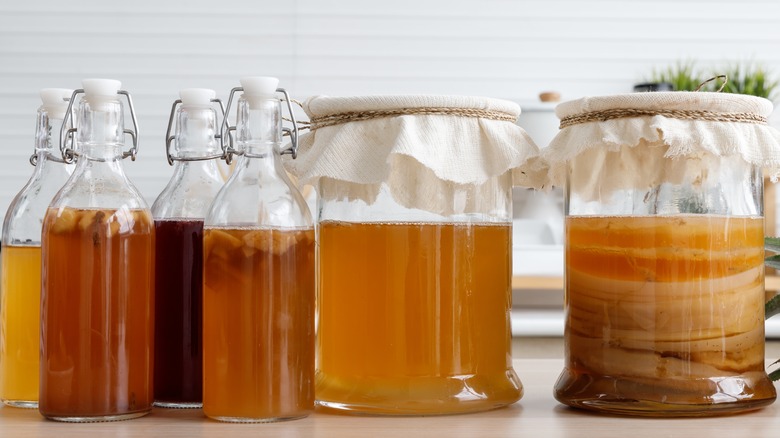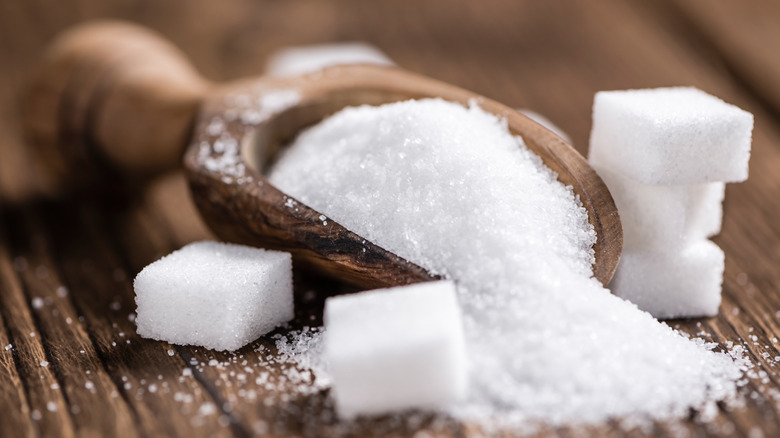The Sugary Mistake You Should Avoid When Making Kombucha
There's nothing like kombucha when you're craving a fizzy, flavorful, and healthy beverage. And one of the best parts of the drink is that anyone can make it at home with just a few items. However, all too many people make a simple and avoidable mistake with one ingredient.
It involves the SCOBY (short for symbiotic culture of bacteria and yeast), which is the engine behind the fermentation in your kombucha. Like other fermented products, this SCOBY needs something sweet to feed on to work its magic. While you might be tempted to use an exotic sweetener like maple syrup or agave, it's vital to stick to plain old refined white sugar for best results.
While it's often thought of as one of the least-healthful things to put in the human body, your SCOBY feels differently. It can feed easily and efficiently on white sugar because no other additives or substances interfere with the digestion of the sucrose. Even trace amounts of elements in other sweeteners or even other styles of sugar can have unpredictable effects on the fermentation process, not to mention the flavor.
Keeping the SCOBY healthy and well-fed
Honey, in particular, should be avoided in most kombucha, despite its familiar role as a natural sweetener. For thousands of years, doctors and chefs alike have been familiar with honey's antimicrobial properties, which can harm the bacteria, yeast, and other organisms that ferment the kombucha. White sugar also offers the advantage of being cheap and highly predictable from one bag or box to another. Plus, it's likely already sitting in your pantry. A standard recipe is a cup of white sugar for every 3 ½ quarts of tea. Those concerned about sugar consumption can rest easy. The SCOBY will use up most of what you add by the time it's ready to drink, with yeasts converting it to carbon dioxide and alcohol, which is, in turn, fed on by bacteria.
This isn't the only particular step required of new kombucha brewers. Make sure to review what you need to know before you drink kombucha ahead of your next batch, including the potential hazards of home fermenting.

